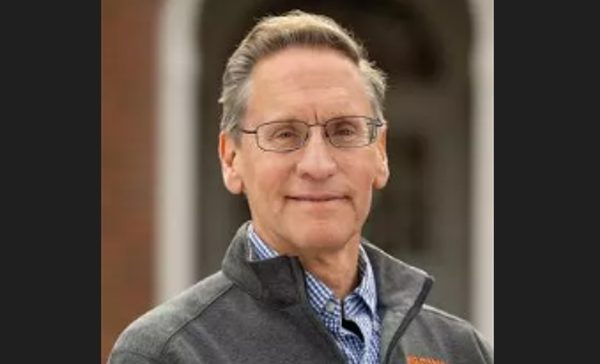Born in the mid-20th century, Scherer’s journey into the world of engineering began at a young age. He exhibited an innate curiosity about how things worked, a trait that eventually led him to pursue a degree in engineering. After earning his undergraduate degree, he continued his education, obtaining a master’s and a doctorate in Systems Engineering. His academic prowess quickly became apparent, setting the stage for a distinguished career.
Scherer joined the faculty at UVA in the early 1980s, quickly establishing himself as a vital member of the engineering community. He was not just a professor; he was a mentor, a researcher, and a leader in his field. His passion for teaching was evident in the way he engaged with his students. Scherer had a unique ability to make complex subjects accessible, often incorporating real-world examples and hands-on projects that inspired enthusiasm and curiosity.
Throughout his tenure, Scherer’s dedication to education was recognized with several teaching awards. His courses were often described as challenging yet rewarding, pushing students to think critically and innovatively. Many alumni credit him with igniting their passion for engineering and preparing them for successful careers.
In addition to his teaching, Scherer was actively involved in research, focusing on systems optimization and decision-making processes. His work contributed significantly to the development of methodologies that are now standard in the field. Scherer published numerous papers in esteemed journals and was often invited to speak at conferences, sharing his insights and findings with a broader audience. His research not only advanced academic knowledge but also had practical implications for industries ranging from manufacturing to healthcare.
Scherer’s impact extended beyond the classroom and the laboratory. He was deeply committed to the community, frequently participating in outreach programs aimed at inspiring young people to pursue careers in engineering. Scherer believed in the importance of diversity in the field and worked tirelessly to create inclusive environments where students from all backgrounds felt welcomed and supported. His efforts helped pave the way for a more equitable representation in engineering.
As a colleague, Scherer was known for his collaborative spirit and willingness to support others. He mentored junior faculty members, guiding them through the challenges of academia and encouraging them to pursue their own research interests. His approachability and kindness fostered a supportive atmosphere within the department, allowing for the free exchange of ideas and fostering innovation.
Beyond his professional achievements, Scherer was a devoted family man. He often spoke about the importance of balancing work and personal life, a principle he lived by. His family was a source of pride and joy for him, and he frequently shared stories about their adventures and accomplishments. Scherer’s love for his family extended to his students, whom he regarded as part of his extended family.
As news of his passing spread, tributes poured in from students, colleagues, and friends, all highlighting the indelible mark he left on their lives. Many shared anecdotes of his kindness, wisdom, and unwavering support during difficult times. Students recalled how he took the time to listen to their concerns, offering guidance and encouragement that often extended well beyond academic matters. His genuine care for his students fostered a strong sense of loyalty and respect, creating lasting bonds that transcended the classroom.
In the years to come, Scherer’s influence will be felt in the halls of UVA and beyond. His contributions to the field of systems engineering will continue to resonate through the work of his students and colleagues, many of whom have gone on to achieve remarkable success. The methodologies he developed and the principles he championed will be integral to the evolution of engineering practices.
UVA will honor Scherer’s legacy in various ways, including the establishment of scholarships and awards in his name. These initiatives will ensure that his commitment to education, mentorship, and community engagement continues to inspire future generations of engineers.
As the university reflects on the life of William T. Scherer, it is clear that he was more than just a professor; he was a beacon of knowledge, a source of inspiration, and a beloved member of the UVA community. His passion for teaching and dedication to his students will forever be remembered. While his physical presence may be gone, his spirit lives on in the hearts and minds of all those he touched.
In closing, the loss of William T. Scherer is felt deeply by all who knew him. His contributions to the University of Virginia and the field of systems engineering are immeasurable, and his legacy will endure for years to come. As the university community comes together to honor his memory, they celebrate a life dedicated to learning, teaching, and uplifting others. Scherer’s impact will continue to inspire, reminding everyone that education is not merely about imparting knowledge but about fostering curiosity, compassion, and a sense of purpose in the world.
